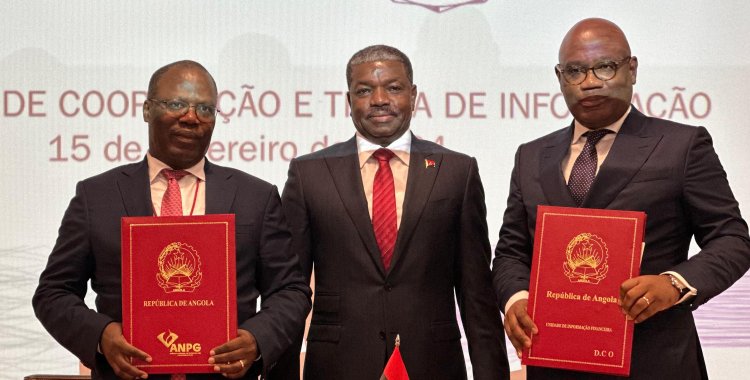Signed in Luanda, the cooperation protocol establishes “mechanisms and requirements for the exchange of information on the oil sector, in order to promote the basis of good practices and legal assumptions in force in Angola in the fight against money laundering, corruption and trafficking of weapons of mass destruction.”
The agreement also aims to “strengthen the organizational culture of the national concessionaire, give importance to the collaboration and alignment of national and international entities, with a view to improving control and transparency mechanisms in the oil sector”, reads a statement from the National Oil Agency. Oil, Gas and Biofuels (ANPG).
It is also “an instrument that includes awareness-raising processes and staff training on matters related to the deprivation of financial crimes that jeopardize territorial integrity”.
For the Secretary of State for Petroleum, José Barroso, present at the signing of the protocol, “cooperation and exchange of information between the parties will encourage and promote better management of the national oil sector and the financial resources generated by it”.
“The oil sector, given its specificity in interaction with international entities and given the fact that it is a strategic sector for the country, must maintain continuous and permanent institutional alignment with strategic entities, such as the Financial Information Unit (UIF), with a view to reinforcing the level of credibility of the sector”, he said.
For his part, the chairman of the Board of Directors of ANPG, Paulino Jerónimo, said that “the promotion of hydrocarbon potential in Angola must go hand in hand with the development and implementation of 'compliance' models that ensure effectiveness and legality of the activity, as well as the substantial improvement of results within the country’s existing legal framework in this matter”.
The director of the UIF, Gilberto Capeça, said that, “although the oil sector is not part of the architecture of the national system for preventing and combating money laundering, the results of the national risk assessment between 2017 and 2019 point to potential risks of ' compliance' in the oil sector”.
“This finding resulted, by mutual agreement, in the signing of this protocol with ANPG to facilitate the timely and regular exchange of information between the parties and increasingly promote good practices in the sector and among all companies and official entities working in the industry of oil in Angola”, he said.







